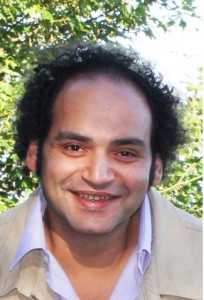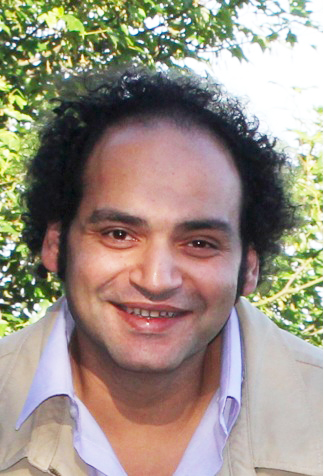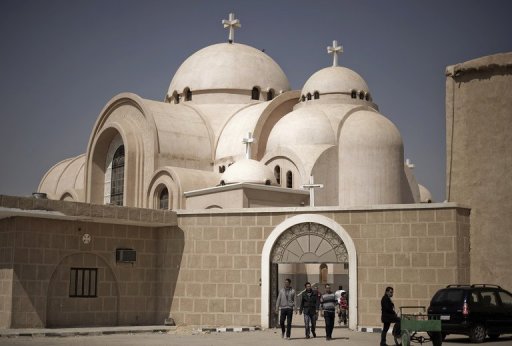 Since Morsi took office, the map of political actors that existed under SCAF has been reconfigured. During the 8 months of Morsi’s presidency, shifting political alliances and power relations have made for a complex political landscape.
Since Morsi took office, the map of political actors that existed under SCAF has been reconfigured. During the 8 months of Morsi’s presidency, shifting political alliances and power relations have made for a complex political landscape.
While such changes are expected in any political system undergoing a process of transformation, in Egypt they were significant for two reasons. First, the Egyptian state has no clear separation of powers and so the extent of the executive’s powers makes change in the executive authority far more significant than in other systems. Second, Morsi’s use of this power was problematic and shortsighted.
The result of this combination was a powerful executive lacking any vision for administration. The executive made one mistake after another in an ongoing abuse of its power. The recurrent mistakes have in turn reconfigured the political forces that make up the opposition.
The first phase of Morsi’s 8 months in office began with his accession and ends with November’s constitutional declaration. During this phase, two factors had a positive impact on public perception of Morsi’s presidency: the anti-SCAF discourse, and the fact that his presidency represented a triumph for the revolution over the old regime and for civil rule over military force. Without these two factors, Morsi’s chances of winning a presidential election or retaining his platform would have been very slim.
The opposition was divided between skeptical observation and support of the new president based on limited options. During this phase, Morsi’s vision of his administration began to unfold and despite some bizarre choices and several blunders, Morsi was able to rule without acute opposition.
With the Muslim Brotherhood and the remaining Islamic forces, he was able to demobilize the street through co-opting some social movements, infiltrating others, and using false stability rhetoric. Meanwhile, institutional political forces were consumed with finding their place within the new network of power.
This first phase could have been used to consolidate Morsi’s power. In the absence of fierce opposition, with a relatively calm street, and by addressing basic grievances and opening up an inclusive platform, Morsi could have gained the support of diverse political factions. Instead, Morsi consolidated his power from above. Morsi embarked on his second phase in office with the constitutional declaration of November: a phase of open abuse of power and dictatorial practices.
The second phase influenced the configuration of political actors in Egypt. Perhaps its most important aspect was the army’s withdrawal from the domestic political conflict.
The army’s official statements so far all point to the same message: the army is not taking political sides, although it supports legitimacy. In other words, the army will not be directly involved but will support the executive. Securing the referendum and giving army officers the right to arrest civilians is an example of this support.
Meanwhile, institutional forces were united under the banner of the National Salvation Front. The NSF has applied pressure through collective action, political organization and election preparation, and interaction with different political forces.
But with the second anniversary of the revolution a third political actor announced its presence: the street, clusters of semi-organized protesters ready to be involved in violent confrontations. Both the street and the NSF are against Morsi and the Brotherhood, but they have different goals. While the NSF wants a transparent political process, the street is after the collapse of this process and the institutions it represents.
Therefore, the situation is now divided between these three political actors: the state, the opposition, and the street. While there appears to be agreement between the opposition and the street over opposing Morsi’s administration, ironically, there is more common ground between the opposition and the state than between the opposition and the street.
The Front will no longer be able to speak in the name of the street or endorse its tactics in fear of losing the moderate and non-politicised voters. The state knows that it has no chance of negotating with the street, because the street has no leadership and no intention to have dialogue with the other two actors.
The current dynamic could lead to three scenarios.
First, the state could cave in to pressure from the Front and the street and agree to some political compromises. In which case, political pressure from the NSF will be reduced and the street will be less congested as a result of the opening in the system. Second, the state could maintain the status quo hoping that tension in the street will die out and political pressure will be diffused with the parliamentary elections.
In this case, the street is expected to radicalise further since no real solution will be offered and the Front might fragment over whether it should run for elections. Finally, if state-sponsored violence escalates and the administration allows the security institutions further room to use force, the street is expected to radicalize, putting the Front in a difficult choice between collective protest and political process.
This contentious, polarized, and absurd political reality is the result of Morsi’s presidency so far. If the state does not offer tangible political compromises, it will run out of safe options. The current instability is a prelude to future battles, and the state does not realize that without an inclusive, transparent and accessible political process, talk of stability is an illusion.
Egypt’s political forces have been reconfigured, but the state remains as rigid, inefficient, and shortsighted as it has always been.


